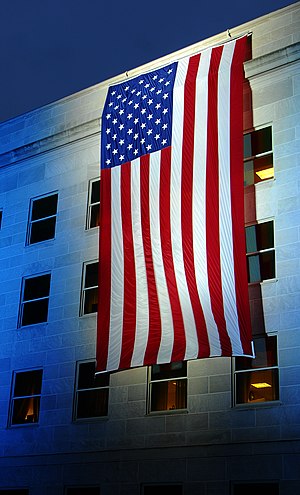
Being raised in an era strained by war and conflict has impacted this generation of college-age students. We are the 9/11 generation.
“It left a terrible imprint on our nation,” said Lori Peek, associate professor of sociology and expert on the aftermath of 9/11. “After 9/11, the media coverage of those events was so pervasive that anyone with sight, the ability to read and/or to hear, it was almost inescapable.”
Ad
Media around the world frenzied, covering every angle, every ethnicity, every issue that was connected to the event.
“One of the things that changed in a profound way after 9/11 was American discourse and awareness about other parts of the world,” Peek said.
While 9/11 caused Americans to become less detached from the rest of the world, this awareness is not to be mistaken with tolerance, according to Peek.
“There has been a long history of mistrust and stereotyping toward Arab and Muslim populations,” Peek said. “If you look at survey data in the years since 9/11, public sentiment has actually become increasingly negative against Muslims and Arabs.”
“We refer to them as extremists, as terrorists, as hijackers, all those kinds of things,” said James Lindsay, a history professor who specializes in the Middle East.
While the attacks that occurred on Sept. 11, 2001 spurred xenophobia abroad, it also caused a fierce backlash towards Muslim and Arab communities that resided within the U.S., according to Peek.
“This has added significantly and profoundly to the lives of young Muslim Americans who were cast into the spotlight in a way that they never wanted to be,” Peek said. “They had to figure out how to adapt and adjust and change.”
Stereotypes and negative views aside, the 9/11 generation is very aware of the ever-increasing repercussions of these attacks. Peek said she sees the impact of 9/11 in her students, saying they are very aware of the cost of the war.
The wars in Afghanistan and Iraq have totaled over one trillion dollars. This is, in part, because of the tax cuts instituted during the Bush Administration, coupled with the defense spending increase that was necessary to fuel these two wars.
Ad
“When you increase your spending and decrease your revenue you’re going to have debt,” said Paul Crumby, an adjunct political science professor. “This will be for you and your children to pay off in the next 50 to 75 years.”
Debt is not the only problem the 9/11 generation faces. Sept. 11, and the wars associated with it, have been a backdrop for this generation for the majority of their lives. This burden of always having that conflict at the back of their minds is not something Peek says she had to go through as a college student.
“There is a certain weight that 9/11 has brought,” Peek said. “I know that a lot of times people say, ‘Oh this generation, they’re just partying and we are fighting these wars and they aren’t paying attention.’”
This weight comes in the emotional and psychological forms. Still, burdens like this are not strictly a bad thing, according to Peek.
“Carrying a burden can make extraordinary people,” Peek said. “I do hope that with that burden might come an additional sense of responsibility to fellow citizens here at home, but also to fellow global citizens of the world.”
Collegian Reporter Laren Cyphers can be reached at news@collegian.com.












